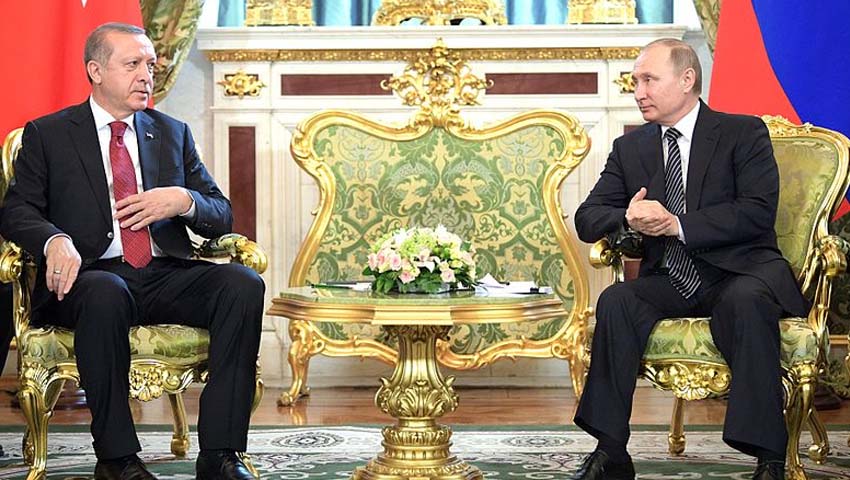As political, geo-strategic, ethnic and religious conflicts worsen throughout the Middle East, can Turkey become the region’s next superpower?
To continue reading the rest of this article, please log in.
Create free account to get unlimited news articles and more!
Through a mix of geographic luck and memories of former grandeur, Turkey has positioned itself at the as a burgeoning middle power between the traditional east and the traditional west. Despite being a member of NATO, over the last year President of Turkey Recep Tayyip Erdoğan has happily cosied up to Russia and proceeded with normalising economic relations with Iran.
This isn’t without deep-seated irony though. Turkey has long backed Syrian rebels to topple Russia and Iranian-aligned President Bashar al-Assad in Syria, and even shot down a Russian jet in 2015, worsening in relations between the two countries.
More recently, Turkey has been accused of supporting Azerbaijan against Russia’s ally Armenia, which allegedly wielded Israeli military drones, while the Times of London alleged that Hamas set up a cyber headquarters in Turkey to support terror leaders in the Gaza Strip.
Confused about just whose side Turkey is on? The rest of the world is just as confused.
Through geographic serendipity, Turkey has been able to position itself as a critical partner to both the East and the West, and intends to use that position for all of the benefits that it can reap.
William Gourlay, research associate at Deakin University’s Middle East Studies Forum, writing for ASPI’s The Strategist this week, suggested that the resumption of talks between the EU and Turkey give the world the opportunity to look past Turkey’s recent misgivings – including a litany of human rights abuses.
“US State Department report from 2020 outlines a litany of human rights transgressions and restrictions on political freedoms in Turkey. In deciding to visit Ankara, the EU turned a blind eye to democratic backsliding and human rights violations, effectively letting Erdoğan get away with it,” Gourlay argued.
“The timing of the EU visit was particularly questionable coming only two weeks after Erdoğan’s snap decision to withdraw from a Council of Europe accord that protects women’s rights.”
Though, Gourlay does illustrate that the European Union leaders have approached the situation with caution. However, not all European leaders have cared to revive Europe’s friendship with Turkey as evidenced by the French President Emmanuel Macron’s war of words with President Erdoğan.
Writing in Foreign Policy, Allison Meikem noted that Turkey’s expansionist foreign policy came to a head in 2020.
“Still, in 2020, Erdoğan took the wrecking ball he’d previously slammed into Turkey’s domestic politics and turned it on the region. This year, Turkey’s military was more active around the world than it has been in decades, or perhaps ever. From Libya to Nagorno-Karabakh, the Turkish leader has used armed force to advance Turkey’s objectives. He’s turned natural gas drilling in the Mediterranean into a contact sport,” Meikem argued.
“But Erdoğan’s real impact on geopolitics won’t roll in on a tank; it will come in the form of the 21st century pan-Islamism that he has finessed through soft power. The religious revivalism that is so controversial within Turkey has filled a void in the larger Muslim world — one on display in Erdoğan’s recent war of words with French President Emmanuel Macron.”
Simply, it is clear that Turkey has realised that the flexibility of stepping out from the traditional East and West dichotomy will afford them the flexibility to reassert their neo-Ottoman ambitions. Whether it is the ongoing growth of Turkey-Pakistani relations, to Turkey’s expansion throughout the Caucuses and involvement in civil wars throughout the region – Turkey’s soft power is growing.
Turkey’s ongoing independence provides it with the ideological, religious and geopolitical ability to re-establish their regional control. Will they become the next regional superpower?
Get involved with the discussion and let us know your thoughts on Australia's future role and position in the Indo-Pacific region and what you would like to see from Australia's political leaders in terms of partisan and bipartisan agenda setting in the comments section below, or get in touch with
Liam Garman
Editor – Defence and Security, Momentum Media

 Login
Login








